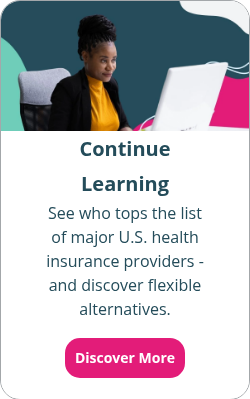What is the low-income special enrollment period?
By Holly Bengfort on July 21, 2025 at 3:15 PM
DISCLAIMER: Under a new final rule, the Trump administration will eliminate the low-income special enrollment period (SEP) effective January 1, 20265.
The cost of health insurance is steadily rising, making it challenging for individuals and families with low annual incomes to find affordable health coverage.
Many people may not be aware of the programs and options available to them, resulting in a lack of necessary medical treatment. However, the low-income special enrollment period (SEP) aims to alleviate some of these difficulties and ensure everyone has access to the healthcare they deserve.
In this article, we'll go over the specifics of the low-income SEP, including who qualifies, how to apply, and the benefits it provides.
Takeaways from this blog post:
- The low-income special enrollment period (SEP) gives low-income people access to affordable health coverage outside of the normal open enrollment period.
- This SEP is available year-round for consumers with incomes below 150% of the federal poverty level.
- The low-income SEP is important because it helps ensure that individuals with limited financial resources can avoid potentially high medical expenses and access necessary healthcare services.
What is a special enrollment period?
A SEP is a time outside of the normal open enrollment period during which individuals have the opportunity to enroll in or make changes to their health insurance coverage. SEPs provide flexibility and access to health insurance options for those who experience qualifying events outside of the normal enrollment period. Open enrollment in the United States typically only lasts from November 1 to January 15, but this differs by state.
The marketplaces generally grant SEPs to individuals who experience certain qualifying life events, such as:
- Getting married or divorced
- Having a baby or adopting a child
- Moving to a new coverage area
- Loss of health coverage
During the special enrollment period, individuals have a limited window of time to enroll in a health plan or make changes to their existing health coverage without having to wait for the next annual open enrollment period. A SEP typically has a 60-day open enrollment window before or after the qualifying life event.
What is the low-income special enrollment period?
The Affordable Care Act (ACA) created open enrollment and special enrollment periods. However, this unique special enrollment opportunity for individuals and families who have low household incomes came about much later.
The U.S. Department of Health and Human Services1 established this federal rule on September 12, 2021.
It helps ensure that individuals with limited financial resources have access to necessary healthcare services and can avoid potentially high medical expenses.
This SEP allows year-round enrollment in ACA-compliant health plans for individuals in states that use HealthCare.gov, as long as their annual household income is below 150% of the federal poverty level (FPL) and they're eligible for a premium tax credit to cover the cost of the benchmark plan2. The Inflation Reduction Act extended the low-income SEP through 2025.
Why is the low-income special enrollment period important?
Studies show that fewer than 15%3 of SEP-eligible people enroll in coverage during their special enrollment period. This might be because they don't understand their coverage options, aren't sure they'll be able to afford coverage, or because the process of getting approved for a SEP can be confusing.
This is especially true for low-income Americans, young people who are less experienced with health insurance, and people who aren't proficient in English.
That's why the new SEP, which isn't time-limited based on a qualifying life event like existing SEPs, is a huge benefit. Individuals who qualify for the low-income SEP can enroll in a plan at any time during the year, giving them the time they need to research their options or even get help finding a plan that works for them.
Enrolling in a health insurance plan through the low-income SEP can provide individuals and families with access to essential health benefits, preventive care, and financial assistance to make healthcare more affordable. It's an opportunity for low-income people to secure the healthcare coverage they need to protect their health and well-being.
Who qualifies for the low-income special enrollment period?
If your household income level is below 150% of the federal poverty level (FPL), HHS considers you low-income and you’ll qualify for the SEP.
The table below shows the income thresholds for the SEP in 2024. If you earn less than these amounts for your household size, you qualify for the low-income SEP. These values use the 2023 FPL for coverage year 2024.
|
Household size (individuals) |
150% of the FPL (lower 48 states) |
150% of the FPL in Alaska |
150% of the FPL in Hawaii |
|
1 |
$21,870 |
$27,315 |
$25,155 |
|
2 |
$29,580 |
$36,960 |
$34,020 |
|
3 |
$37,290 |
$46,605 |
$42,885 |
|
4 |
$45,000 |
$56,250 |
$51,750 |
|
5 |
$52,710 |
$65,895 |
$60,615 |
|
6 |
$60,420 |
$75,540 |
$69,480 |
|
7 |
$68,130 |
$85,185 |
$78,345 |
|
8 |
$75,840 |
$94,830 |
$87,210 |
|
9+ |
Add $5,140 for each additional family member, starting at $50,560 for a family of eight. Multiply that number by 150% (1.5). |
Add $6,430 for each additional family member, starting at $63,220 for a family of eight. Multiply that number by 150% (1.5). |
Add $5,910 for each additional family member, starting at $58,140 for a family of eight. Multiply that number by 150% (1.5). |
This new low-income SEP is estimated to help roughly 1.3 billion4 Americans get access to affordable coverage year-round.
If you believe you may qualify for the low-income SEP, you can visit the official ACA marketplace website or reach out to a certified enrollment counselor for guidance. They can assist you in determining your eligibility, exploring available options, and navigating the enrollment process.
When does coverage start?
It's important to note that if you enroll in exchange coverage after qualifying for the low-income SEP, your coverage won't begin immediately. This prevents individuals from enrolling in coverage when they start having health issues, which causes monthly premiums to go up.
Instead, you'll have coverage effective the first of the following month from when you enrolled in a health plan. So, if you sign up for a health plan on March 18, your coverage will begin on April 1.
Conclusion
The low-income special enrollment period (SEP) is a valuable opportunity for individuals and families with low incomes to enroll in a health plan outside of the regular enrollment period. It provides access to financial assistance and essential health benefits, ensuring that everyone has the opportunity to maintain their health and receive the necessary medical care.
This blog post was originally published on November 3, 2021. It was last updated on July 21, 2025.
Check out more resources
See these related articles

What happens if you miss Open Enrollment for individual health insurance?
Missed Open Enrollment for health insurance? Find out what options you have, including qualifying life events and special enrollment periods (SEPs).

What is a special enrollment period?
Find out which life events qualify you for a special enrollment period, allowing you to shop for health insurance outside of the open enrollment period.

A state-by-state guide to extended open enrollment periods
Did your state extend the annual open enrollment period? Find out in this comprehensive guide detailing the extended open enrollment periods across all states.



